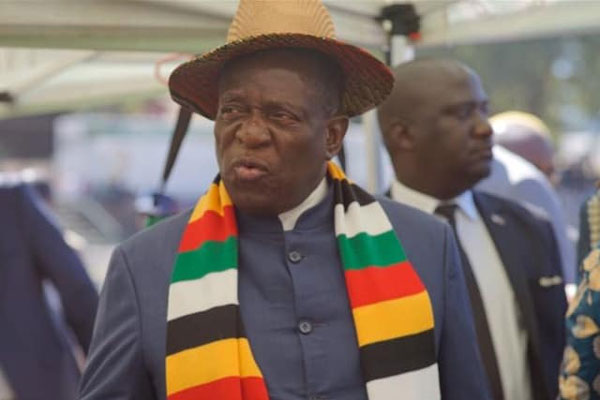
By Jonathan Maphenduka
GOVERNMENT must fill in the gaps in the budget statement concerning the move to compensate white former farmers, instead of being content to announce its move in the compensation saga and thinking it has done justice to the subject.
The compensation issue has taken 20 years to reach this point and government must leave no stone unturned in explaining to the people the vast implications of its move.
It cannot deal flippantly with the issue when people of this country are being forced to sacrifice so much without government explanation. Government must be open in telling the people why they are expected to remain silent when so much in their life is being pushed without explanation.
There are numerous questions to be asked and government must answer them honestly and without any rancour.
One of the burning questions relates to the numbers of farmers to benefit from the compensation fund. There is further the emotive issue of multiple farm ownership which was a common feature among white farmers before the stunning land reform programme.
In parts of Matabeleland, for one example, up to 80 farms were surrendered to government after a number of farmers were murdered by dissidents. The idea was that government should return the farms to their owners after the dissident problem had been pacified enough to enable the farmers to utilise them unmolested.
I cannot swear to this, but it was rumoured that government paid for them instead of returning them to their former owners. These farms were for years under the management of the Agricultural and Rural Development Authority (Arda) until they were allocated to black farmers.
- Chamisa under fire over US$120K donation
- Mavhunga puts DeMbare into Chibuku quarterfinals
- Pension funds bet on Cabora Bassa oilfields
- Councils defy govt fire tender directive
Keep Reading
The white former owners of these farms can confirm or deny they were ever paid for the properties. It will, therefore, be for government, in a broad statement of intent to compensate, to explain how this mammoth task will be undertaken. The government cannot avoid making a public statement of policy on how compensation will be undertaken. The compensation issue is not a state secret and government should not attempt to conceal any information — no matter how embarrassing it may turn out to be — because compensation is in fact a rewriting of the painful history of colonialism in this country.
And in raising these concerns I am not endearing myself to both parties in this shameful colonial saga. However, I take comfort from the fact that one should not seek favour when presenting history of the people.
There is a justifiable need — in the interest of transparency and justice — for government to come out clean and avoid white-washing the compensation issue which has a potential scandal to it.
The Victoria Secret Agreement awarded benefits to the estate of anyone in the agreement who died during the war. Does the government agreement with the farmers include payment to the estate of the second generation of the farmers who benefited under the secret agreement?
These are the generation of farmers whose third generation survivors are behind the compensation deal. The compensation issue is a matter of profound public interest to the African people of this country and cannot become a state secret or be white-washed to satisfy the pressures of expediency.
By accepting to compensate, the government of Zimbabwe has left the British government scot-free from its obligation to compensate its kith and kin it sponsored to take this country in the manner which is well-documented in the history of this country.
It is my argument that the British government should be called upon to compensate the farmers, and not the African people of this country.
It has been stated time and time again that the farmers who lost their farms in 2000 suffered loss through improvements of their farms. This is an extremely tenuous assertion because those improvements were designed to maximise profitable utilisation of the land.
This is the land for which they were paid to take. The government should be fighting mad to protect the African people of this country, instead of betraying their interest in favour of buckling under the sanctions pressure.
Let the people of this country know that compensation is not the answer to the sanctions saga.
The farmers themselves should be ashamed to put compensation before their loyalty as citizens of this country. I propose that, instead of compensation, the remaining farmers should be given their 99-year leases. For the rest of the 4 000 farmers and the estates of those who have died, the settlement should be done by the United Kingdom working with the government of Zimbabwe.
The international community which has imposed sanctions must understand that the Mnangagwa administration had nothing to do with seizure of the farms.
It is my argument, therefore, that the farmers suffered no loss and cannot pass on to the African people any claim to make good their asserted loss. The government must clear this issue up to avoid injustice to the African people who suffered incalculable loss as a result of colonialism and usurpation of their land.
Everywhere in the country there are African people who were allocated land by government but were victimised by lawless political elements when government should have protected them. The so-called jambanja affected untold numbers of African beneficiaries. Can they seek relief under the compensation fund? Can they claim any compensation for proven losses?
The government will be doing itself a favour if it ensured that the compensation issue is opened up for scrutiny in a debate instead of being treated as a state secret.
l Jonathan Maphenduka is an author and political analyst. Email: [email protected] Phone: 263 0772 332 404











